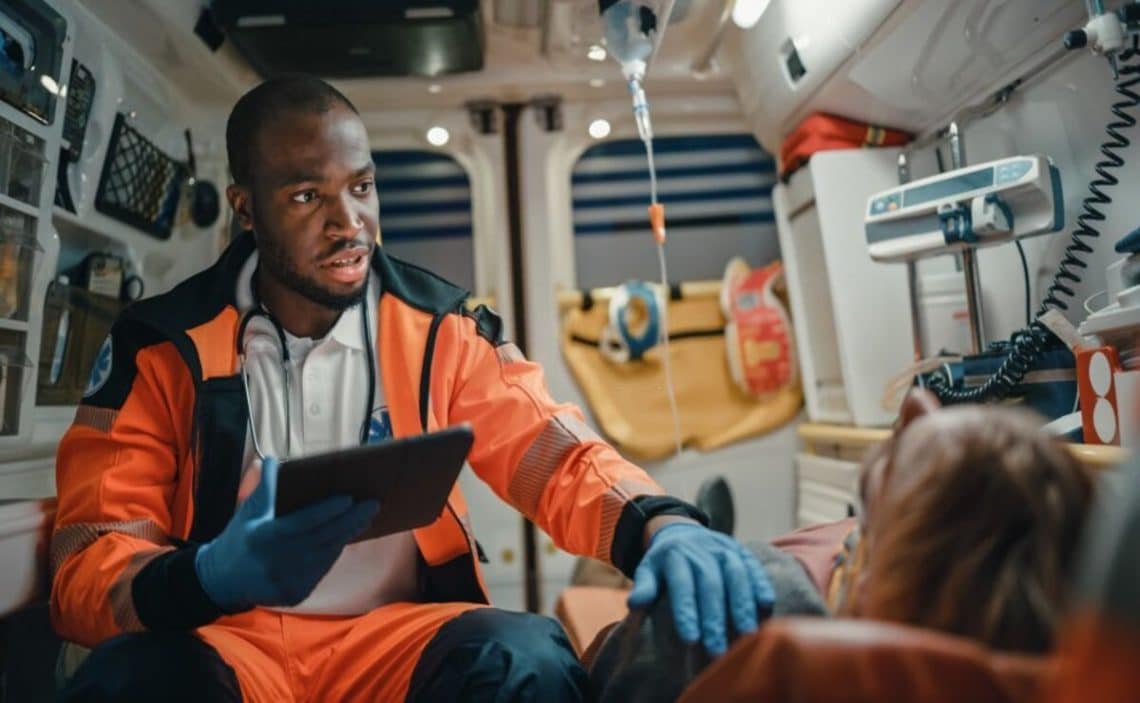Paramedics are emergency response medical professionals, trained in making quick diagnoses and administering immediate medical care to victims of accidents, violence and sudden illnesses, such as cardiac arrests or strokes.
These guys also provide quick, controlled transfers to healthcare facilities, keeping patients stable while they’re in transit by using advanced equipment and their medical expertise.
Paramedics respond to emergency calls and work under intense pressure. Quite often, their hard work can be the difference between life and death. As you probably know, paramedics spend most of their time in ambulances, which are stocked with vital medical supplies and are fitted with emergency treatment equipment, such as oxygen masks, ventilators and defibrillators to ease respiration and aid resuscitation. These dynamic medics also clean, dress and bandage minor and major injuries.
This lot usually work in teams, with one or two other qualified paramedics and ambulance technicians. These guys are all trained in advanced driving skills, emergency medical procedures and the administration of medication.
It’s not all sirens, blue flashing lights and high-speed driving though! After the high-octane events have been played out, paramedics have to write incident reports, clean their vehicles and maintain the equipment in their ambulances.
Salary & benefits
Paramedics earn annual salaries ranging between £21,000 and £28,000, while paramedics with team management responsibilities can earn between £25,000 and £35,000 per annum.
Those who opt to work during unsociable hours can earn significantly more if they are willing to sacrifice their evenings and weekends. All employees also receive additional benefits such as pensions and study leave allowances.
Working hours
The emergency medical service operates on a 24/7 basis and all work is carried out in planned shifts, covering regular and irregular hours, weekends and national holidays.
However, complementary holidays and an annual leave entitlement of 27 days (not including bank holidays) can more than make up for the irregular schedules.
Entry
A diploma or degree in paramedical science is the basic entry requirement for prospective candidates. Practical training during this study period is carried out in hospital and ambulance environments, providing an all-round experience for trainees.
Other essential requirements include: a full, valid driving licence, successful clearance of security and criminal background checks, a medical examination and excellent fitness, stamina, eyesight and physical agility.
Previous volunteering experience with organisations such as the British Red Cross and the St John Ambulance service may be very useful in securing a full-time position.
Training & progression
Paramedics need to be registered with the Health Professions Council (HPC) before they can start working. Initial ‘on-the-job’ training also includes three or four weeks of emergency driving training. All paramedics are required to maintain a detailed record of their professional development and experience over the first two years. The profession is regulated by the College of Paramedics, and professional benefits are available to members only.
Newly registered paramedics tend to spend at least two years working before being promoted to team leader positions.
Other opportunities for career progression involve climbing the ladder into managerial positions across an entire region, while other paramedics opt to get out of the ambulance and into the hospital, becoming nurses or specialists in handling particular types of trauma incidents.
Teaching paramedical science students is another viable career path.


